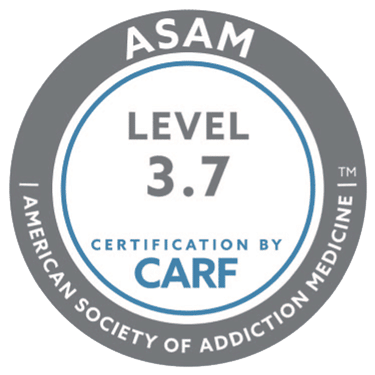For those who follow a kosher lifestyle, finding addiction treatment can be especially challenging. Many Jewish patients struggle to land a center that not only supports their recovery but also respects their religious needs.
Though all treatment centers provide various therapy options like inpatient and 12-step programs, they don’t offer kosher food or observe Jewish rituals.
This can be detrimental for Jewish patients because they won’t find a safe environment to seek recovery while practicing their religious beliefs.
Kosher addiction treatment bridges this gap by offering addiction recovery options that respect Jewish customs and dietary laws, creating a community for Jewish patients where they focus on healing and finding their way back to God.
At Recreate Behavioral Health Network, we believe that no one should have to choose between their faith and their recovery. That’s why our kosher addiction treatment programs provide a supportive, faith-backed environment where patients can heal without compromising their beliefs.

What Is Kosher Addiction Treatment?
Like any other drug addiction treatment plan, kosher addiction treatment helps people suffering from substance abuse or related mental health disorders. The major distinction between kosher addiction treatment and conventional rehab is that it’s tailored for people following a kosher lifestyle.
In other words, kosher drug rehab incorporates religious practices in the treatment plan, which traditional plans don’t do.
On top of that, kosher recovery plans involve serving kosher food to meet the dietary expectations of the patients.
The purpose of these programs is to help kosher patients heal without detaching them from their lifestyle and guide them back to God.
While traditional plans will still offer suitable therapy options, they won’t provide the necessary facilities that kosher patients need. And the last thing a rehab patient needs is compromising their lifestyle or struggling to find proper food.
Why Kosher Addiction Treatment is Important
Drug addiction treatment centers are everywhere, so why is kosher addiction treatment important?
Mainly because it considers all the life details of the patient. Instead of only focusing on the addiction part, these plans also focus on the religious background of the patients, providing facilities for daily practices and holidays.
On top of that, kosher addiction treatment involves serving kosher food and abiding by the Jewish dietary laws, which can be challenging to find in traditional rehab centers.
Here’s why kosher addiction treatment is important:
It’s Faith-Backed
Patients who come from a religious background find it harder to fit in rehab centers. They find comfort in their daily prayers and religious guidance, and staying committed to their practices gives them a sense of stability.

For kosher patients, that’s particularly important because they practice daily prayers, observe Shabbat, and only eat kosher food. They have a lot of requirements in their daily lives.
If that’s not available, the recovery journey will be much harder.
No one should have to choose between their faith and their recovery—that’s why a faith-centered treatment approach is important. It makes the patients feel more disciplined and secure, and it makes it easier for them to transition back to their normal lives after rehab ends.
It Provides a Sense of Community
Many Jewish people struggling with alcohol addiction, substance use, or related problems may feel disconnected from their faith community due to stigma. They may be exposed to judgy eyes in their daily lives, and they may find it hard to practice their religious beliefs when people are judging them for suffering from addiction.
That’s where kosher addiction treatment comes in. It helps Jewish patients recover in a judgment-free environment, surrounded by supportive medical staff and patients from similar backgrounds. They can benefit greatly from group therapy offered at rehab centers, where they can communicate with patients who have the same struggles.
It Provides a Safe Environment
Many Jewish people suffering from addiction may feel uncomfortable in traditional rehab programs where they may be the only observant people.
Aside from the struggle of not finding kosher food, they’ll find it harder to practice their daily prayers. They may feel judged or uncomfortable, especially if they’re surrounded by people from different backgrounds or religions.
Kosher addiction treatment puts them in the right place, where they can practice their beliefs safely while working on recovery.
It Encourages Family Involvement
The Jewish culture puts a strong emphasis on family and community, and kosher addiction treatment does the same.
Programs for Jewish patients often include sessions with family members and forms of family therapy, trying to provide the patient with support groups for challenging times.
Traditional rehab programs may not put the same emphasis on family involvement, which is vital in Jewish communities.
It Respects Kosher Dietary Rules
People who only eat kosher food often struggle at treatment centers because of the lack of suitable options. Jewish dietary laws are pretty restrictive, so a lot of food is off the table.

For example, while Jewish people can eat meat and dairy, they can’t eat them together. They must be prepared and eaten separately to avoid cross-contamination.
Not only that, but Jewish people also only eat meat when it’s from a slaughtered animal. If the animal is killed in any other way, the meat is forbidden to eat.
On top of that, they can’t eat the meat of any animal—pigs, kangaroos, horses, squirrels, and rabbits are all forbidden meats.
There are some rules concerning seafood as well—any sea animal that doesn’t have fins and scales isn’t kosher. That means Jewish people can’t eat shrimp, lobster, crab, or similar animals.
These rules are all challenging to follow if you’re getting treatment in a conventional treatment center. You’ll never be able to verify if the meat is slaughtered, and you may find fewer options to eat.
That’s why kosher addiction treatment is vital—because it provides Jewish patients with kosher food and respects their intricate dietary laws.
What to Expect From Kosher Addiction Treatment
If you or a loved one is seeking substance abuse treatment, you should know what to expect before applying for a program at a kosher treatment center.
Trained Medical Staff
At our facilities, we offer kosher addiction treatment with trained medical staff, including doctors, therapists, and counselors who understand both the physical and psychological aspects of addiction.
They’re also familiar with Jewish customs and values, which ensures that the treatment is provided in a way that aligns with religious principles.
Tailored Healthcare Programs
Though substance abuse mostly involves the same substances, each person’s experience is different, which makes it hard to find a one-size-fits-all treatment plan.

Our kosher addiction treatment programs consider the specific needs of Jewish patients, including mental health concerns and religious obligations. Holistic approaches, such as mindfulness, are also incorporated into our structured yet flexible plans to promote lasting recovery.
Group Therapy and Support
Recovery is sometimes more effective when done in a supportive community. Kosher treatment programs provide group therapy sessions where patients can share their struggles and successes with others from the same background.
These sessions break the isolation that addictions can cause, especially for patients coming from a religious background.
Our group session strategy involves discussing Jewish values, including faith-based healing and mutual support. This makes these sessions a powerful tool in recovery.
Daily Religious Support
In kosher treatment programs, patients will have access to daily prayer services, Torah study sessions, and guidance from rabbis or Jewish religious leaders.
They’ll also get to observe Jewish rituals, like Shabbat, which can provide comfort and a sense of familiarity.
Our centers also offer opportunities to reflect on personal growth through Jewish teachings, helping patients work through the challenges of addiction while staying anchored to their faith.
Engaging in Jewish Customs
At our facilities, we provide kosher meals, observe Shabbat, and celebrate Jewish holidays. This is essential in kosher addiction treatment so that patients don’t feel like they have to choose between recovery and religious beliefs.
We help them recover in a way that aligns with their values, and we encourage them to engage in Jewish customs to feel at home. This makes it easier for them to complete their recovery post-rehab.
Relapse Prevention
Kosher addiction treatment programs teach patients relapse prevention strategies that align with Jewish values. These strategies often revolve around self-discipline and accountability, helping patients stay sober after rehab without needing help from anyone.

During treatment, our patients are equipped with tools that help them fight triggers, stress, and difficult emotions without turning to substances.
Post-Rehab Support and Aftercare
Recovery doesn’t end when patients are done with their rehab program. Kosher treatment centers provide aftercare services to help patients transition back into everyday life while staying committed to sobriety.
This may include outpatient counseling, mentorship programs, and Jewish support groups.
Final Thoughts
Kosher addiction treatment respects Jewish traditions, creating a sense of community and providing patients with a safe place to practice their beliefs without being judged.
At Recreate Behavioral Health Network in Florida, we guide our patients through every step of the recovery journey, providing them with religious guidance and relapse prevention strategies for post-rehab sobriety.







